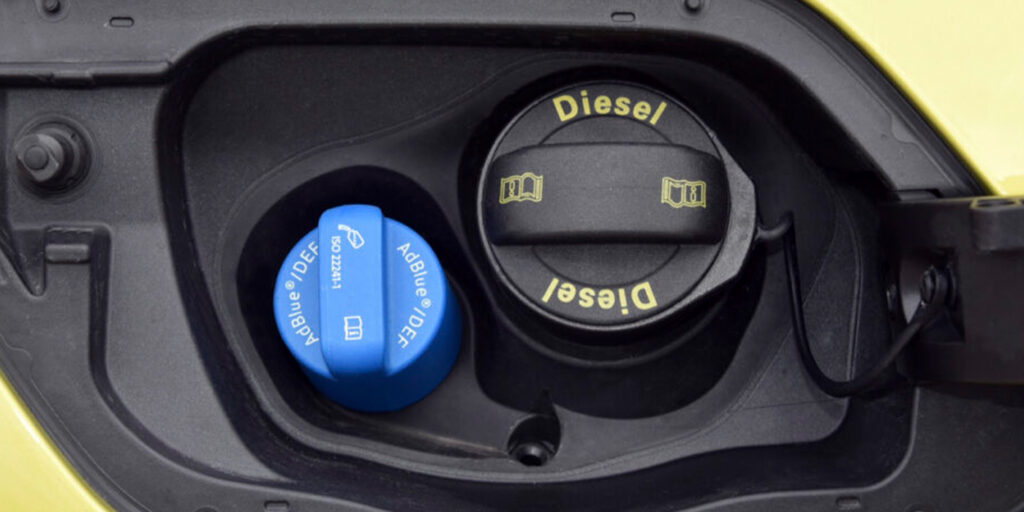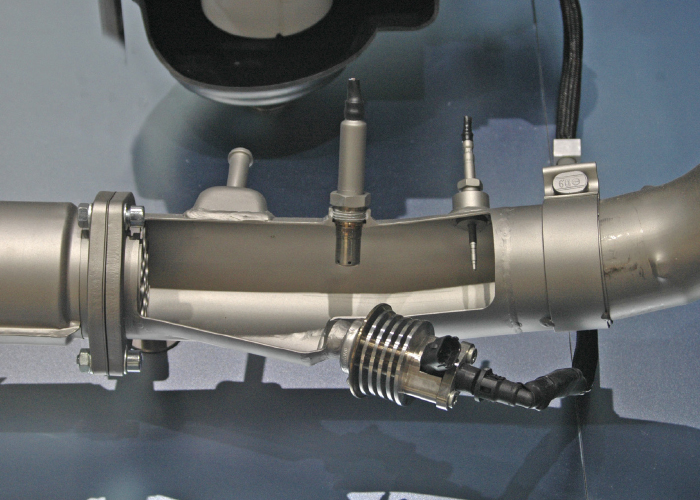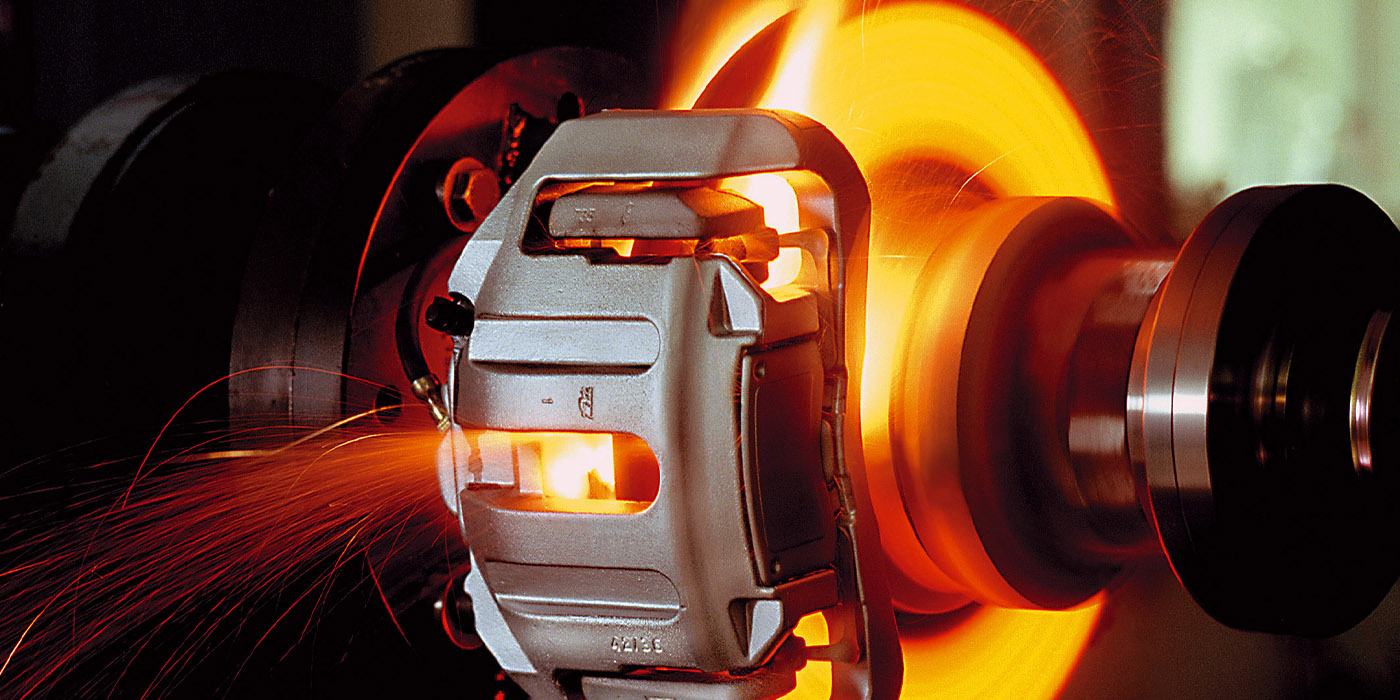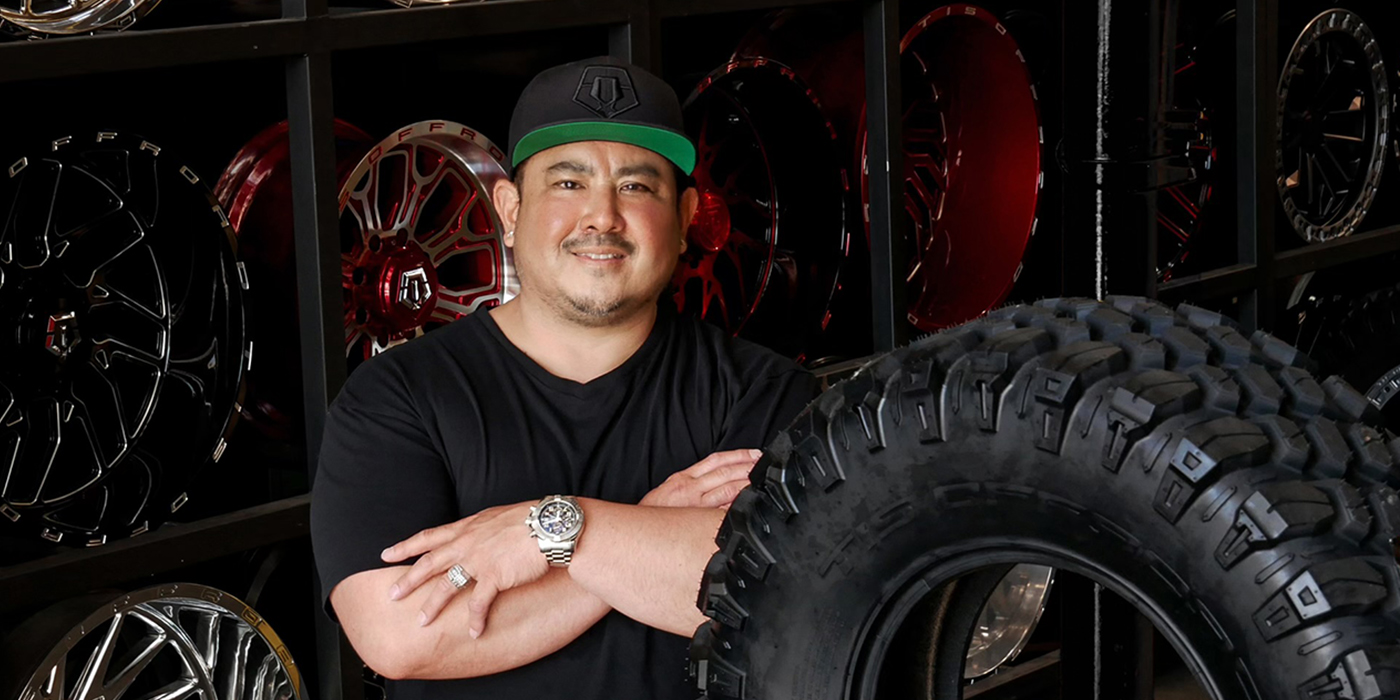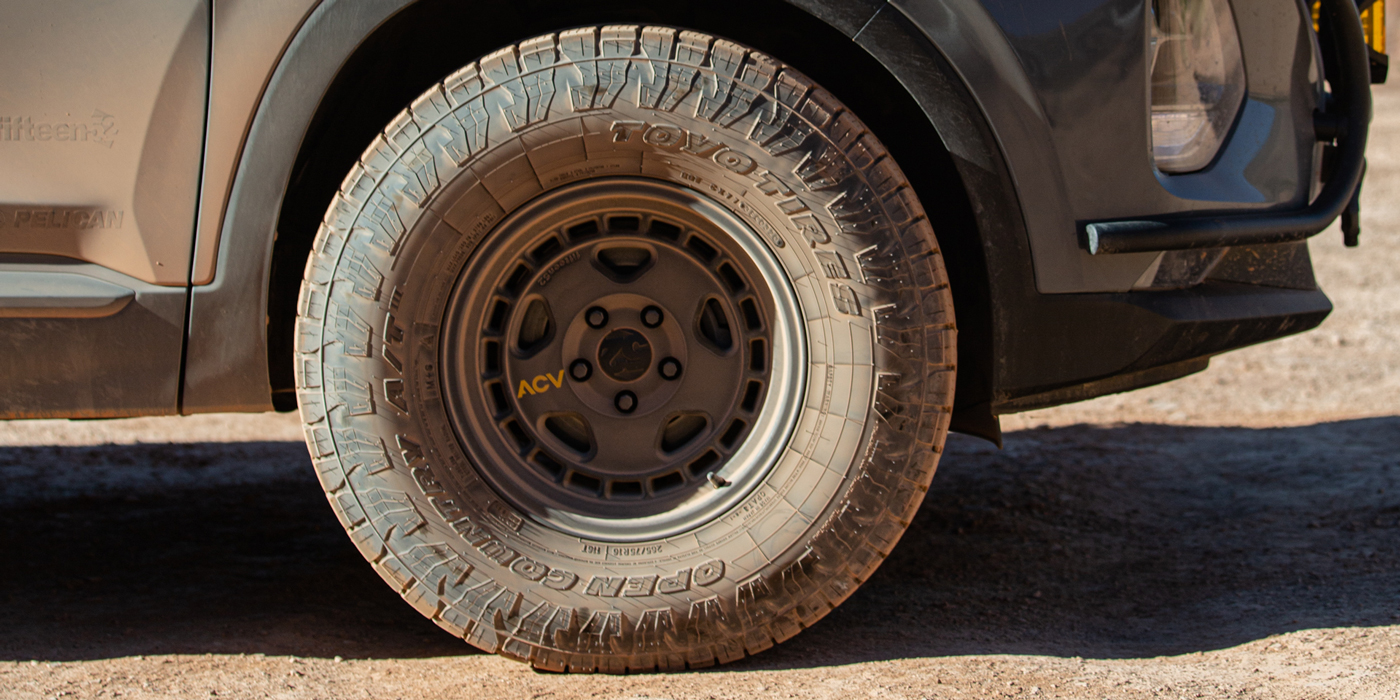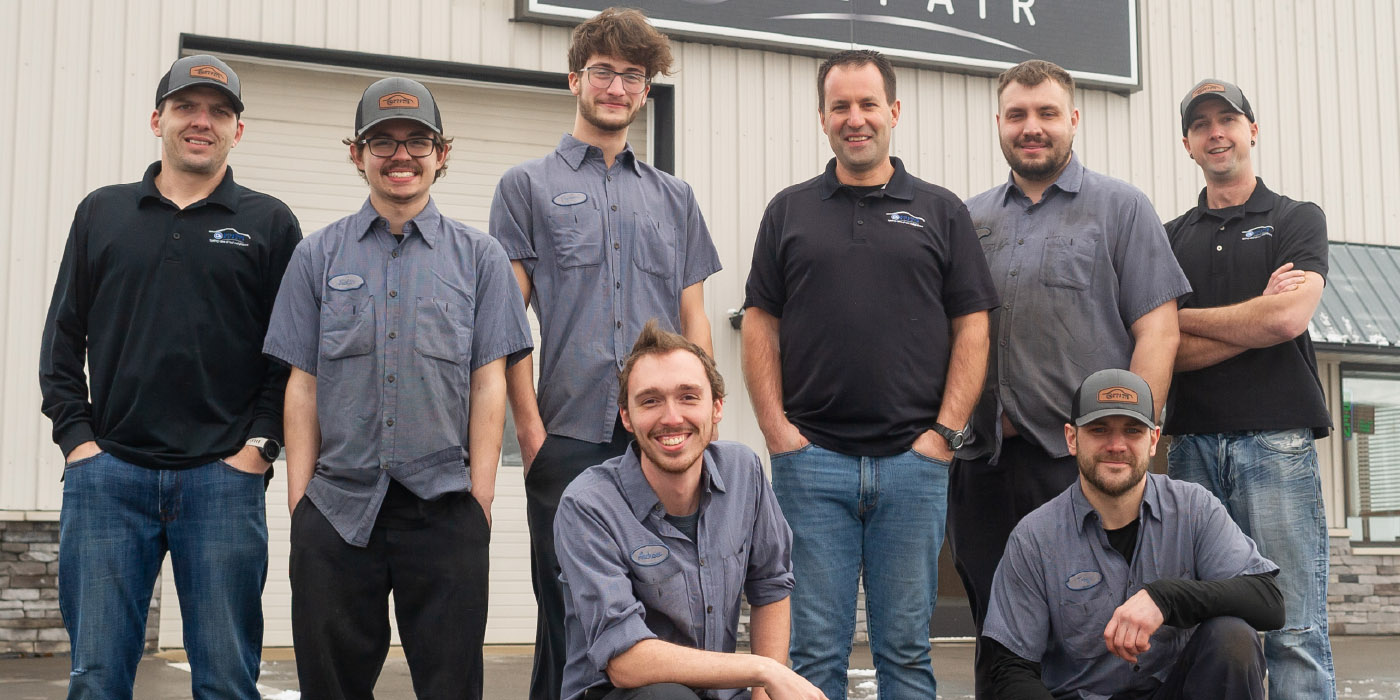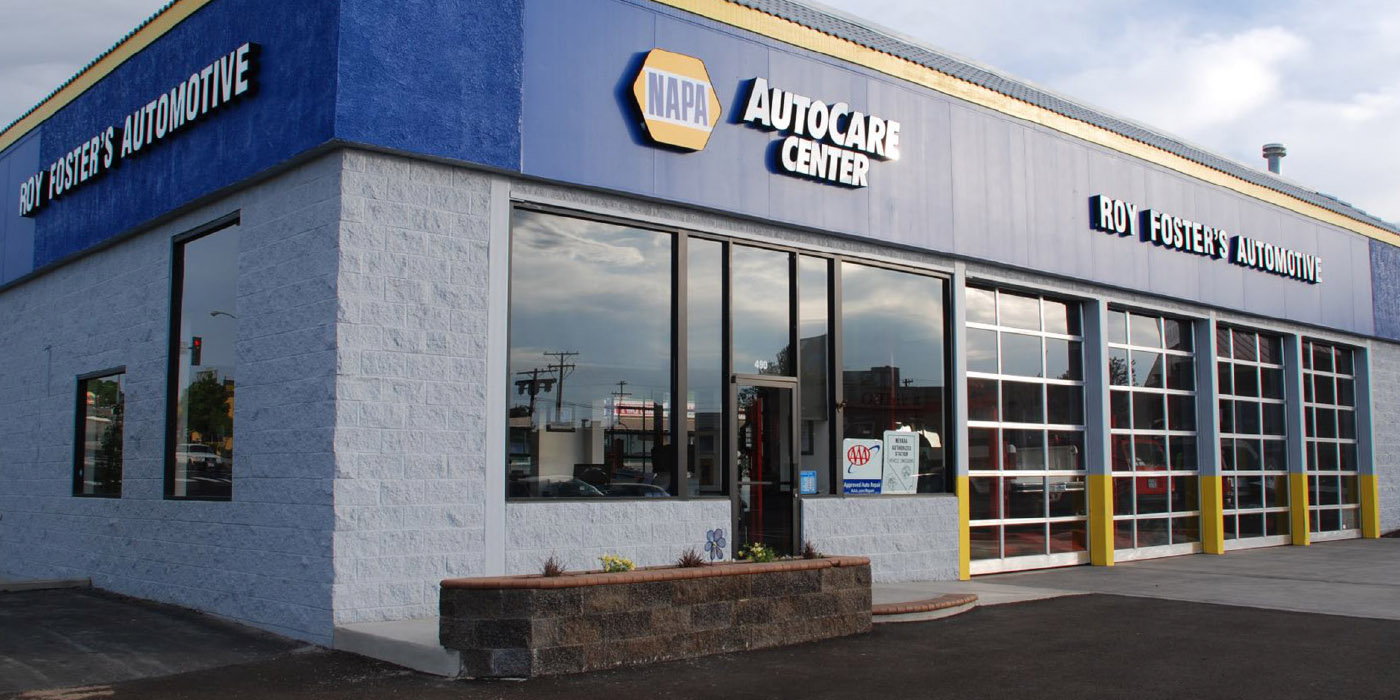Knowing that nearly every diesel-powered vehicle built since 2010 (including those with modified engines with high horsepower and torque) is equipped with Selective Catalytic Reduction (SCR), also means knowing they require Diesel Exhaust Fluid (DEF) to function. That being said, understanding how they operate may be less obvious.
A diesel exhaust system is carefully designed to take the fuel-air mixture that has been used by the combustion chamber in a diesel engine and ensure that via the tailpipe, it is removed from the combustion chamber. Government regulations in recent decades have been working toward cutting down emission levels of diesel exhaust gas, and as a result, modern systems are made to help minimize each vehicle’s carbon footprint.
Modern diesel exhaust systems are complex given how advanced the technology is and they include multiple sub systems. These can include systems such as a particulate filter (DPF), oxidation catalyst (DOC), reduction catalyst (SCR), ammonia oxidation catalyst (AOC), and exhaust gas recirculation (EGR), each serving a unique purpose. Such complex systems are bound to require repairs, but family-owned automotive aftermarket company Old World Industries, the manufacturer of brands such as BlueDEF and PEAK, is sharing several insights to ensure your diesel exhaust system runs smoothly to avoid insanely expensive repairs.
HOW DOES DEF WORK AND WHY IS IT BENEFICIAL?
The government didn’t mandate that DEF be used for diesel emission solutions. The government did mandate that what comes out of the tailpipe needs to meet certain standards. It was left up to engine manufacturers to decide what the right technology is to put into their vehicles so that the tailpipe emissions meet said standards. The industry as a whole aligned around the use of SCR as a technology that takes the injection of DEF fluid as the best solution for reducing NOx emissions.
There are numerous technologies on these vehicle platforms and prior to the industry aligning around SCR and DEF, they were using a lot of exhaust gas recirculation (EGR) to lower temperature spikes in the combustion process. EGR is the opposite of what someone wants if they are hoping to produce maximum power. If that’s the goal, vehicle owners want more fresh, clean air in the motor, not recycled exhaust air.
EGR is a valid technology, but with the development of SCR and the injection of DEF, you can have your cake and eat it too. That means maximum horsepower and torque. That also means maximum fuel economy while still meeting the stringent tailpipe emission standards dictated by the government.
How does it work, you ask? Small quantities of DEF are injected into the exhaust upstream of a catalyst. Here, it vaporizes and decomposes to form ammonia and carbon dioxide. The ammonia is the desired product, which along with the SCR catalyst, converts the NOx to harmless nitrogen and water.
Since the inception of SCR, there have been issues with deposit build-up, especially with low-quality DEF. Low speed operation, extended idling, short trips, and stop and go driving can prevent the SCR system from reaching and maintaining optimal temperatures, which can result in deposit buildup.
This deposit buildup can choke off the exhaust system causing a reduction of power and economy. Once this buildup accumulates, it can require time consuming disassembly, mechanical cleaning, or component replacement to make the system functional again. Even worse, the engine can de-rate to a crawl or completely shut down until repairs are made, leaving the vehicle dead on the road.
Since these deposits cannot be removed and can lead to costly repairs, using a premium DEF like BlueDEF Platinum is key.
Jay Gagnon, the senior product manager for BlueDEF at Old World Industries, recommends all diesel engine owners perform the following maintenance checks to minimize the risk:
Don’t skip preventive maintenance or ignore small problems in any of the vehicle’s sub systems. Small problems can lead to expensive repairs.
Regular Diesel Particulate Filter (DPF) maintenance. Regeneration only oxidizes particulates; it does not remove ash. Follow the manufacturer’s maintenance schedule for DPF cleaning to prevent DPF clogging and failure.
Prevent contamination of the DEF system by keeping tank filling ports and tank caps clean.
Store DEF in dedicated containers. Purity is critical as DEF is very sensitive to contaminates. Don’t re-use other fluid containers to store DEF.
Change DEF filters regularly according to the manufacturer’s maintenance schedule.
Don’t run the DEF tank empty. The engine will de-rate and eventually shut down if you run out of DEF.
Keep the DEF tank full. Top it off at the end of the day to prevent condensation from forming, which could lead to contamination.
Use the latest innovations in DEF to prevent SCR system deposits from forming. It’s a critical investment to ensure efficiency and prevent future maintenance.
WHY INVEST IN A PREMIUM DIESEL EXHAUST FLUID?
For those unfamiliar with the Old World Industries’ BlueDEF Platinum, it’s a mixture of high purity synthetic urea, deionized water and a proprietary formulation. The formulation features Advanced System Shield Technology, which, with regular use, significantly reduces harmful deposits that commonly build up in modern diesel exhaust systems with SCR.
Reducing harmful deposits not only provides optimum fuel economy, but ultimately sustains the life of the system. Without the SCR system that requires DEF and other related systems, diesel vehicles would run far less efficiently at a much higher cost.
When all is said and done, if you look at the fuel economy gains (even if you add in the additional cost of purchasing DEF), vehicle owners still find their total net output is less than before the introduction of these new technologies.
With today’s advanced systems, there’s been a 90% decrease in diesel exhaust emissions since the ‘90s. In fact, DEF is classified as an organic compound, and is carefully regulated by the American Petroleum Institute.

